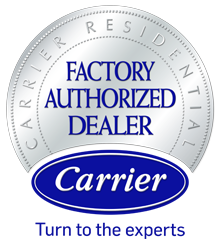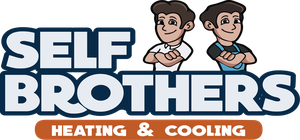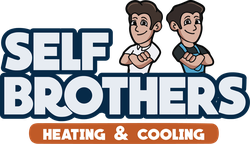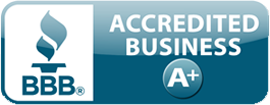With cold weather knocking on the door, OK, beating on the door, you need to be able to rely on your heating system. That’s a no-brainer. What you might not know is that there are some simple things you can do to protect your system from the worst Mother Nature has to dish out, maybe get a few more weeks/months/years out of it, or at least help it keep you and your family more comfortable.
Tip 1: Keep Your HVAC System Clean
It costs a lot of money to buy a new HVAC system. It’s extremely complicated. It has a lot of electronics and moving parts and parts that heat up really hot and others that get really cold and things that light up and things that shouldn’t. And you depend on it to keep your home comfortable and your indoor air clean. Doesn’t it seem logical that it should require some care during it’s lifetime other than when it breaks? For best performance and a longer life, let us clean it and tune it up at least once a year. Twice is better, once before the heating season and once before the cooling season, but even once will help.
Tip 2: Care of Your Heat Pump in the Winter
Your heat pump sits outside all year doing what it’s supposed to do. Most of the time it ignores the weather conditions and functions just fine. However, it does not like ice. Freezing up during an ice storm is a common problem and can be the death of your outdoor unit. What happens is that a layer of ice forms on the fan and the blades outside. When your thermostat calls for heat, the heat pump turns on, the motor tries to turn the blades but can’t and and burns itself out trying. The best thing to do to prevent this is if you know there’s going to be an ice storm or sleet that’s expected to freeze, turn on your emergency heat. This will turn your heat pump off and turn on the backup heat source. Remember though that this backup heat source is the most expensive way to heat your house so don’t turn it on until the last possible minute and turn it back to heat pump (meaning turn the emergency heat off) as soon as you notice that the ice has melted off of your outdoor unit.
Note that this does not apply if you have a dual fuel system or a gas furnace/air conditioner system. This only applies to a heat pump.
Tip 3: Care of your Furnace
If you have a furnace, about the only thing you can keep an eye on that’s affected directly by cold weather is the drain line. If you have a high efficiency furnace, there is a drain line that runs from the unit to the outside somewhere or into some kind of drain. Know where that line is. In the winter it can freeze up and shut your furnace down. If it does freeze, thaw it out, turn off the breaker to your furnace, and turn it back on again to reset it. It should fire back up.
Tip 4: Designing a Home for Your Outdoor Unit
If you decide to build a lean-to or shed for your outdoor unit, remember to keep at least a four-foot clearance from the top of the unit so it can work and about two feet all the way around so it can be serviced. We have some small guys on our crews, but not that small.
You can cover the outdoor unit with a tarp or a board or something if you know it’s going to ice but BE SURE TO TAKE THE COVER OFF BEFORE YOU TURN THE HEAT PUMP BACK ON! You don’t want to waste all your hard work by burning up your outdoor unit because you forgot this little step.
Tip 5: Simple Safety Measure to Prevent Damage to Your Indoor Unit and to Your Home
It’s not a good idea to store anything too close to your indoor equipment. It’s definitely not a good idea to store anything flammable near your HVAC system. And it’s NEVER good to store anything near your gas furnace or gas water heater. Particularly in the case of older or less efficient gas or oil furnaces and water heaters, they need air in order to burn properly and to draft, or carry the harmful by-products of combustion out your chimney which you already know because you read my article about combustion safety. (A newer or more efficient furnace has a second pipe that brings in the fresh air it needs from outside.) So do yourself and your house a big favor and give your indoor units plenty of breathing room.
And that’s about it. Besides changing your filters regularly, which you should know already. If you have any questions about how to care for your equipment or want to schedule an appointment for a cleaning and tune-up because I convinced you that it’s a really, really good idea, call Self Heating & Cooling at 678-909-6377.
***
Looking for the best HVAC company in Marietta, Smyrna, Atlanta and the surrounding areas? Call Self Heating & Cooling! For over 15 years, Self Heating & Cooling has been providing the highest quality HVAC products and the most outstanding customer service available — Call Self Heating & Cooling today to start enjoying your air! 678-909-6377. You can also check us out on Facebook, Google, Kudzu and Next Door to see what our customers are saying about us.














